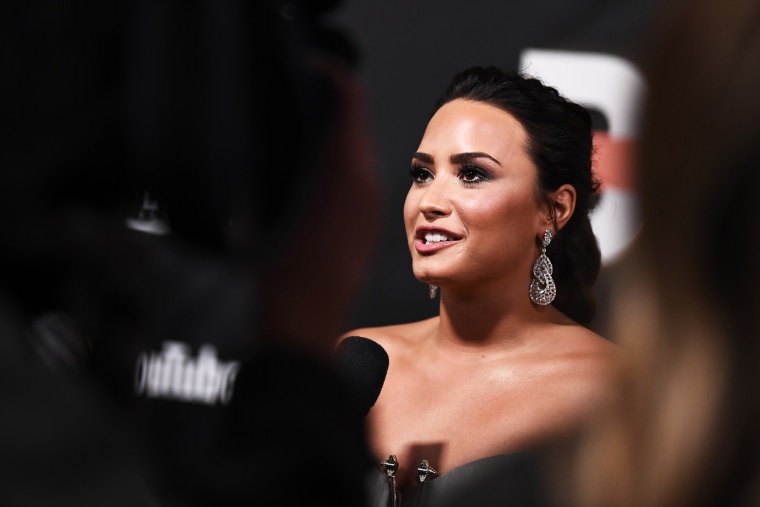Pop singer Demi Lovato committed an unforced error this week. She took her issues with diet culture, stemming from her own eating disorder recovery, out on an unsuspecting frozen yogurt spot. After walking in and seeing food labels that triggered her, she waged a social media war against the small, women-owned business, branding them as “diet culture vultures” for their labels for “sugar free cookies” and other “diet foods.”
Ultimately, it’s up to each of us to take responsibility for staying on track with our own progress.
Lovato's emotional reaction to being triggered — often a sinking feeling of dread accompanied by fear or sadness and a desire to flee the stimulus — is common for people in recovery, as I have found myself, though the size of her platform made her outward behavior more egregious. She acted as though she’s owed a trigger-free society when she isn’t.
Support for people recovering from eating disorders is an important goal, and increasing awareness about what things can be triggering is key to reaching it. But that doesn’t mean giving a license to bully those who don’t comply. Ultimately, it’s up to each of us to take responsibility for staying on track with our own progress.
This point was driven home by the circumstances I found myself in when I heard about the Lovato dust-up: I was at that very moment battling my own triggers. I happened to be at physical therapy for a recent hamstring strain. When my physical therapist told me the elliptical machine would be my prescribed form of cardio until my hamstring healed, my response was, “As much as I want?” with the look of a child who has just been told they could have ice cream before dinner.
Getting the green light to do a form of cardio that has no purpose beyond burning calories got me for a second. I felt like I’d been given permission to indulge in my own way — and then I was taken aback by my response. It wasn’t a healthy one; someone with a normal relationship to exercise wouldn’t have given the PT’s recommendation about the elliptical a second thought.
But my reaction was my problem alone, and it wouldn’t make sense to bring it to my PT’s attention. Most people can use the elliptical with no qualms. They can endure a work conversation about the keto diet. They can order from a restaurant despite the calorie counts being listed. It’s impossible to know what exactly will be a trigger to any given person, so it’s only fair that our expectations match that reality.
It’s true that diet culture is insidious, but that doesn’t always mean any presentation of diet-oriented information is problematic. After all, there are individuals who don’t seek out sugar-free, gluten-free or vegan options simply because they want to be the smallest person in the room. There are medical and ethical concerns that prevent many from consuming the standard froyo.
While 9 percent of the U.S. population has an eating disorder, 1 percent has celiac disease, 10.5 percent has diabetes and between 30 million and 50 million Americans are lactose intolerant. Veganism is growing in popularity, and there are individuals who try to lower their carbon footprint by choosing plant-based items. Lovato’s eating disorder voice may be so loud that it drowns out other people’s needs.
If Lovato wants to speak out about the problems with diet culture, targeting a single business is the wrong approach. It's better to call out the swarm of real diet culture vultures: Celebrities and influencers who only show themselves when they’re eating with restraint, not when they go heavy on the sprinkles or treat themselves to a full-fat cone. There are almost certainly people as famous as she is who make money promoting diet products they don’t even use.
While Lovato blundered, attacking her can be just as problematic. She is still someone trying to overcome a mental health crisis. An onslaught of tweets have ridiculed her, including ones that criticize her for being body positive, encouraging others to love themselves no matter their size, yet still having insecurities. It isn’t hypocritical for people to post perfected photos of themselves at the same time they talk about loving themselves, especially since someone in recovery may have a distorted view of self. And recovery itself is not linear.
Also, rants like TV personality Piers Morgan’s about being “triggered” don’t harm a big star like Lovato as much as the everyday people who suffer through their own triggers in silence out of fear of ridicule. Eating disorders, like depression and anxiety, are serious mental health concerns that need to be treated with care and compassion.
Eating disorders are complicated and soul-sucking for those of us who battle them, and that strife doesn’t end the second we start on the path to recovery. The magnitude of these disorders may not be fully known to the rest of society, but everyone does know what internet bullying can do — whether the recipient is a small business or a celebrity constantly under public scrutiny.



